This post and the photos within it may contain affiliate links. If you purchase something through the link, I may receive a commission at no extra charge to you.
How can you keep a dream journal? Are there any benefits of having one?
One of the best advantages of keeping a dream journal (or a dream diary) is that it promotes lucid dreaming. It can help you to improve your dream awareness and dream recall. But that’s not all.
In this article, you will learn how to keep a dream journal for lucid dreaming, and we will observe a few additional questions, including:
- What is a dream journal?
- Do dream journals help lucid dreaming?
- How to keep a dream journal: Step-by-step guide
- Tips & Dream Journal examples
- FAQ:
– Are there more dream journal benefits?
– What to do if I cannot remember any of my dreams?
– How often should I write in my dream journal?
– Should I write down my nightmares? - Summary
- Bonus: A free dream journal template and infographic
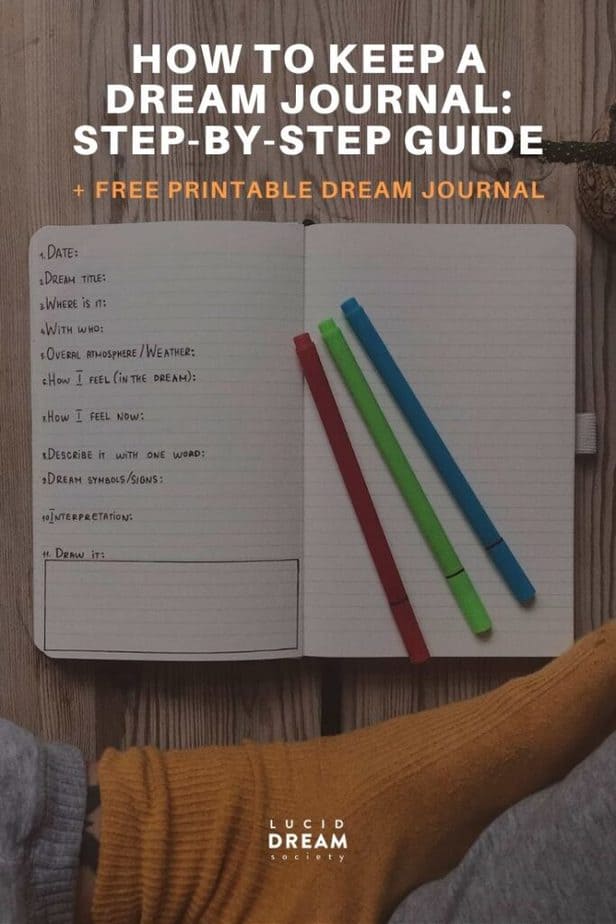
What is a dream journal?
A dream journal (dream diary) is a notebook in which you record your dreams.
It is best to write your dreams immediately after you wake up, and the dream is still fresh in your mind.
This can help you analyze the meaning of your dreams while improving your dream recall, which is crucial if you want to learn how to lucid dream.
There are no rules on how you should keep your dream diary. You can write or illustrate your dreams’ most essential aspects, write and follow your dream’s whole storyline, or even voice record them.
Does keeping a dream journal help lucid dreaming?
Keeping a dream journal can help you induce a lucid dream. It will improve your dream recall, you will have more vivid dreams, you will identify dream symbols, and your awareness will increase. All of these factors are essential when it comes to lucid dreaming.
Furthermore, keeping a dream diary can tremendously help you to induce a lucid dream. Let’s dive a bit deeper into each of these benefits:
- Dream recall: This study suggested that having a dream journal will enhance your dream recall. By writing down your dreams each morning for a couple of weeks, you will see a massive difference in your abilities to remember your dreams.
- More vivid dreams: By keeping a dream diary, your dreams will start getting more vivid – they will look more ”alive,” with more colors and more details.
- Dream symbols: Keeping a dream journal will help you develop an idea and identify your ”dream symbols.” This is crucial for lucid dreaming, as you can recognize that you are in a dream precisely with the help of your dream symbols/signs.
For instance, if you often dream about imaginary creatures, flying, or that something unrealistic is happening, these scenarios will be familiar to you when you write your dreams down. Then, it will be easier to recognize that you are dreaming.
- Increasing awareness: Deciding to keep a dream journal could be one of the easiest yet life-changing decisions you’ve ever made. Keeping a dream journal forces you into a daily habit of thoughtful observation, making you more aware of your surroundings as well as your deeper self.

How to keep a dream journal: Step by step guide
Let’s jump directly into the step-by-step guide on how to keep a dream journal effectively:
Step 1: Get a notebook.
The notebook needs to be specifically to record your dreams. Do not use it to write anything unrelatable. You can look at these examples here (or you can get the free template at the end of the article).
Step 2: Write right after you wake up.
Write your dream down immediately after you wake up. Dreams fade away very quickly after you wake up.
If you get out of bed and continue with your morning routines, the memory of your dream will start fading. Soon after that, you may forget all of it. That’s one of the most common mistakes people tend to make.
It’s best if you do it first thing in the morning. Another great tip is to keep your dream journal next to your bed with a pen.
Step 3: Write in present tense.
When you wake up, it’s helpful to write in the present tense. Describing your dream as if it is happening again in real time can help you recollect more details. It is simple; by putting your mindset “back in the dream,” you can recall a more clear memory.
Step 4: What do you write in a dream journal?
It is helpful to have a framework with plenty of questions. Sometimes, dreams can be bizarre, confusing, and even overlapping.
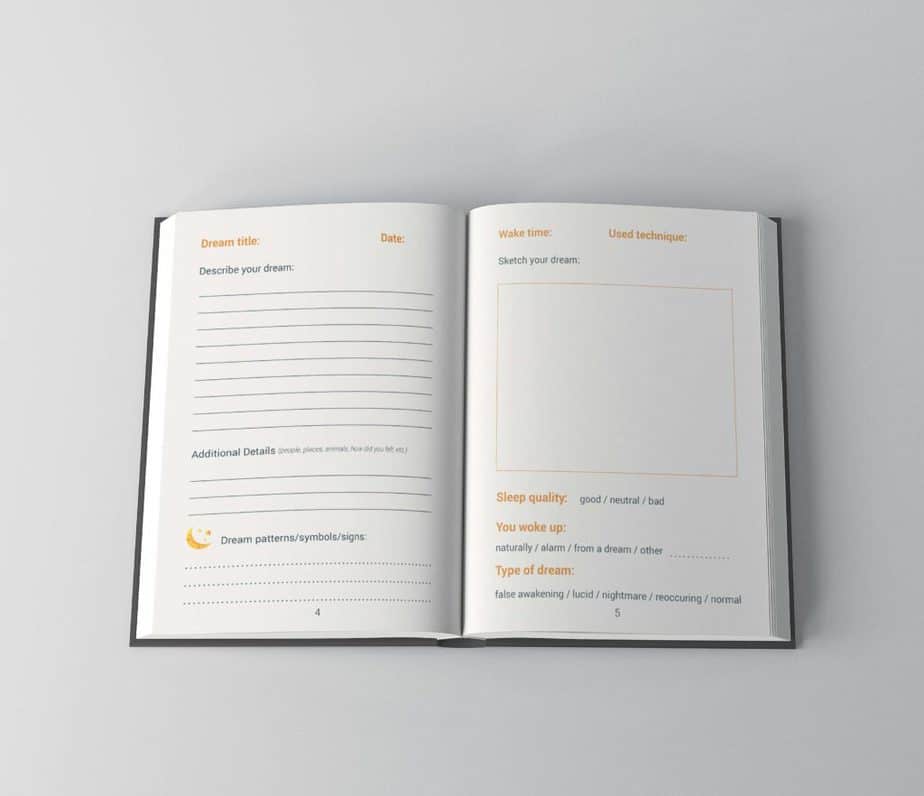
Plenty of questions may help to keep it simple and write as many details as possible. Try to separate the page of the notebook into parts, where you can write:
- The dream location – What was around you? Is it an unknown place or a familiar one?
- Your emotions and feelings – What were you feeling? Is it changing throughout the dream (for example, is it changing if you are in certain places?)
- The people – Who was there with you? Was it the people you usually are hanging out with?
What were they doing? Were they acting weird/normal? - The weather – Does it change when you are in certain places or with specific people? Was it sunny, foggy, dark?
- What were you doing (activities)
- The dream symbols – Things that reoccur in your dreams, the ones that will help you to trigger lucidity
- The feelings that the dream made you feel
- How do you feel now about this dream?
- Title – Try to include a title for each dream (more about that below)
It will look something like that (click for a bigger preview):
You can answer and include even more details; the ones above are just a few ideas. You can also buy an already made dream diary, like this one, or this one.
Step 5: Set an intention to remember your dreams.
Do you find yourself struggling to remember any of your dreams? Don’t worry; you can fix that.
Set an intention and use affirmations, which can be extremely powerful in helping you to remember your dreams. Before going to sleep, repeat in your head a mantra for a couple of minutes.
It can be something like “I will remember my dream” or “Tomorrow morning, I will recall my dreams.”
Anything in those lines can work. Do not underestimate this exercise, as it can be beneficial if you stick to it.
For more helpful ideas on remembering your dreams, check the FAQ section.
Step 6: Do it every day.
Even if you are struggling with your dream recall, in the beginning, don’t worry.
Constant affirmations and writing in your dream journal will improve it in a couple of days or weeks. After all, we dream about 2 hours every night, so you should be able to start remembering bits and pieces soon.
Even if you don’t remember anything – just write “No dreams recalled” in your journal. The important part is to create a habit.
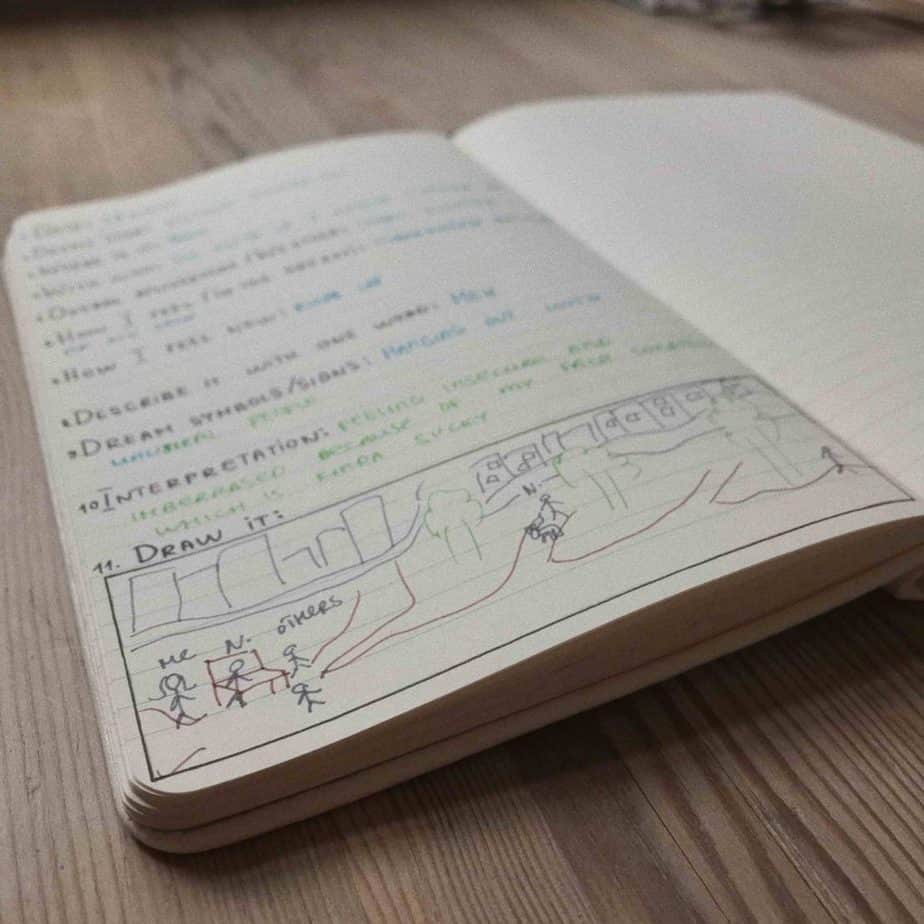
8 tips for getting started with writing a dream diary
1) Draw – You can try to draw images from your dream. It doesn’t have to be pretty or precise, just a quick sketch to help you to differentiate the dream and to remember it more (for a reference, check the photo above).
2) Colors – You can also use different colors (both for drawing and writing) to express other emotions or themes.
3) Focus on one dream – If you feel confused due to overlapping dreams or not enough memories, do not freak out. You can try to write a few bullet points or anything you remember.
Don’t try to form a narrative or follow a sequence. Later on, you can read it through and perhaps make a connection. Additionally, choose the most vivid dream (in case you remember more) and focus on it.
4) Add titles – As mentioned, it’s good to write a title for each dream. That helps to differentiate the dream and not overlap it with other ones you had. Plus, in some cases, is an opportunity for more insight.
5) Keep your journal with you – Or download an app on your phone (like this free Dream Journal Ultimate Mobile App). Having your dream journal during the day helps you to stay focused on the goal. It is also possible that a certain event will remind you of something that happened in your dream.
6) Experiment – After all, if you don’t like the idea of writing your dreams, you have a few other options. You can download a Dream Journal Ultimate Mobile App for free or directly voice record them on your phone. These two options are useful as they can make the whole process way faster.
7) Dream journal examples
To get a better understanding of how to keep a dream journal, you can check some of the following dream journal examples as inspiration and ideas:
- Rob Vincent’s dream journal – A dream journal-type blog, in which Rob shares his dreams.
- You Are Dreaming – An article with a few dream logs.
- Reddit – There are countless examples of dream entries that you can find there.
- Lucid Dream Society – Image examples of a dream journal:
How to keep a dream journal – FAQ:
Keeping a dream journal is useful, as there are some additional outstanding benefits of owning one. That includes:
Improve overall memory: Not only that improves your dream recall, but it is a general exercise for your brain and beneficial for your mental development.
Stop nightmares: A dream journal will help you notice different dream patterns, and many people suggest that it can help with recurring nightmares.
Explore your subconscious: Keeping a dream journal can give insight into your mind during sleep. You can explore where your mind goes while you are asleep. Studies suggest that dreams are shaped by deep wishes, inner feelings, thoughts, and fantasies. They imply that dreaming is a way to help us go through relevant information while asleep.
Discover more about your emotions: A study suggests that we tend to remember dreams that include experiences with a stronger emotional pull. Keeping a dream journal can help you to confront these feelings.
Interpret dreams: By learning more about your sleeping mind, you can dive into the dream interpretation world and see the meanings of some of your dreams here.
Improves your creativity: Studies suggest that recording your dreams can increase your imagination and generate new thoughts and ideas. Many iconic works of art were born in a dream. A few examples are – the Beatles song “Yesterday,” Mary Shelley’s Frankenstein’s monster, the movie Inception, the Structure of The Atom by Niels Bohr, and the Speed of Light by Albert Einstein.
There are some special tips for the ones that cannot remember their dreams at all. Two successful tips are to:
1) Wake up during the night – Put an alarm 2-3 hours before you usually wake up. Most dreams appear in the last stage of sleep, called Rapid Eye Movement (REM sleep). REM sleep is the longest in the early morning and putting an alarm between 5-6 am increases the chance of waking up in the middle of a dream. Then, you will have fresh dream memories.
It’s not necessary to write a lot when you wake up. Simply write a few bullet points or words that will help you to recall the dream later on. Another benefit is that when you go back to sleep, there is a possibility that you will enter the REM stage again, which may cause a lucid dream.
2) Make a dream pillow – To fall asleep quickly and boost your memory and dream recall, try to make a dream pillow. It is almost effortless yet super useful, and you can see how to make it in this article.
In the beginning, it is best to write in your journal as often as you can. The more you write, the faster you will become better at your dream recall.
A theory suggests that nightmares may help us adapt to potential real-life situations. They also believe that dreams allow people to experience stressful environments, which prepare us for scary moments in the waking world.
That is why it can be essential to write down your nightmares, too. It can help you observe your unconscious mind and perhaps find things that trouble you in your waking life.
Summary
Was that convincing enough for you to start a dream journal? It is not only beneficial for lucid dreaming, but it is also enjoyable and healthy for your well-being.
To sup up the main points of this article:
- A dream journal (or dream diary) is a notebook in which you record your dreams.
- It is best to write your dreams immediately after you wake up, and the dream is still fresh in your mind.
- There are no set rules for keeping a dream journal. You can experiment and find what’s most suitable for you.
- Keeping a dream journal can help you to induce lucid dreaming.
- There is a simple step-by-step way to keep a dream journal, even if you can’t recall many of your dreams in the beginning.
- Dream journaling has more amazing benefits, that are beyond lucid dream induction.
- You can download a free dream journal template below.
Feel free to share some of your cool (lucid) dreams in the comment section!
How to keep a dream journal – Free template pages (PDF file):
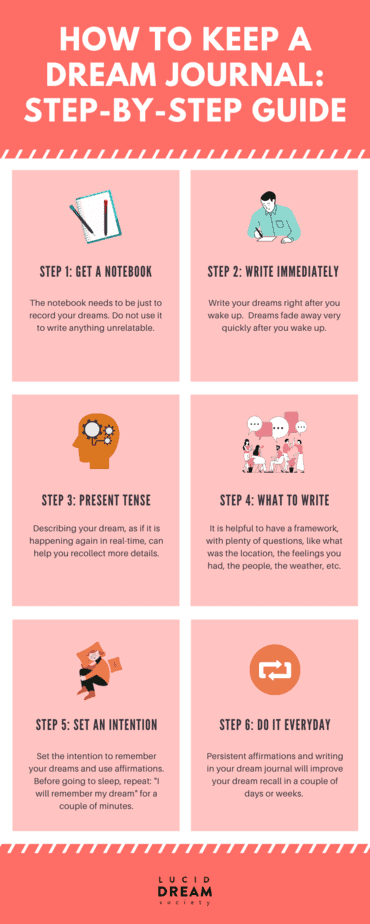
- Remind yourself to remember dreams: Jack Obery (2012). The Effects of Suggestion on Dr ects of Suggestion on Dream Recall F eam Recall Frequency equency. DOI: https://digitalcommons.library.umaine.edu/cgi/viewcontent.cgi?article=1069&context=honors
- Dream length: Brain Basics: Understanding Sleep: https://www.ninds.nih.gov/Disorders/Patient-Caregiver-Education/Understanding-Sleep#5
- The dream: Myron L. Glucksman (2001). The Dream – A Psychodynamically Informative Instrument. DOI: https://www.ncbi.nlm.nih.gov/pmc/articles/PMC3330663/
- Dream diary enhances dream recall: Denholm J.Aspy (2016). Is dream recall underestimated by retrospective measures and enhanced by keeping a logbook? An empirical investigation. DOI: https://www.sciencedirect.com/science/article/abs/pii/S1053810016300447?via%3Dihub
- Dreams and creativity: Mauricio Sierra‐Siegert (2016). Minding the Dreamer Within: An Experimental Study on the Effects of Enhanced Dream Recall on Creative Thinking. DOI: https://onlinelibrary.wiley.com/doi/abs/10.1002/jocb.168
- The threat simulation theory: Katja Vallia (2003). The threat simulation theory of the evolutionary function of dreaming: Evidence from dreams of traumatized children. DOI: https://www.sciencedirect.com/science/article/abs/pii/S1053810003000199
- REM sleep: Brain Basics: Understanding Sleep. DOI: https://www.ninds.nih.gov/Disorders/patient-caregiver-education/understanding-sleep#:~:text=Most%20of%20your%20dreaming%20occurs,your%20time%20in%20REM%20sleep.
Institute of Medicine (US) Committee on Sleep Medicine and Research (2006). Sleep Disorders and Sleep Deprivation: An Unmet Public Health Problem. DOI: https://www.ncbi.nlm.nih.gov/books/NBK19956/#a2000f7efrrr00052




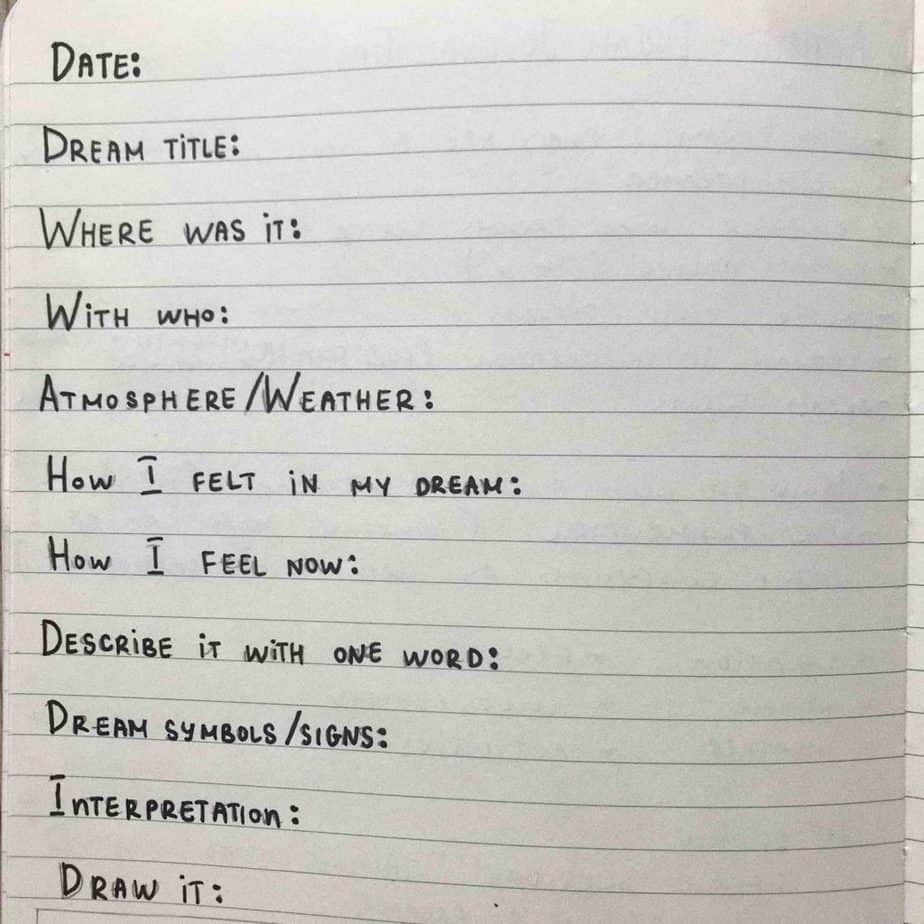
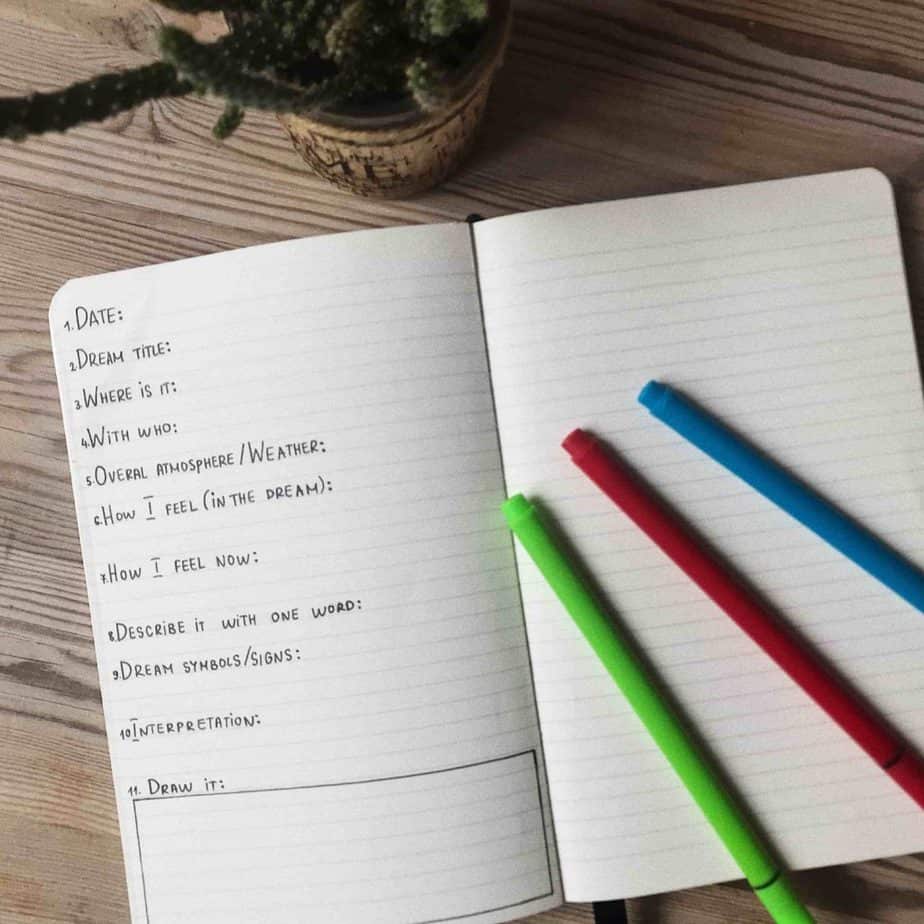
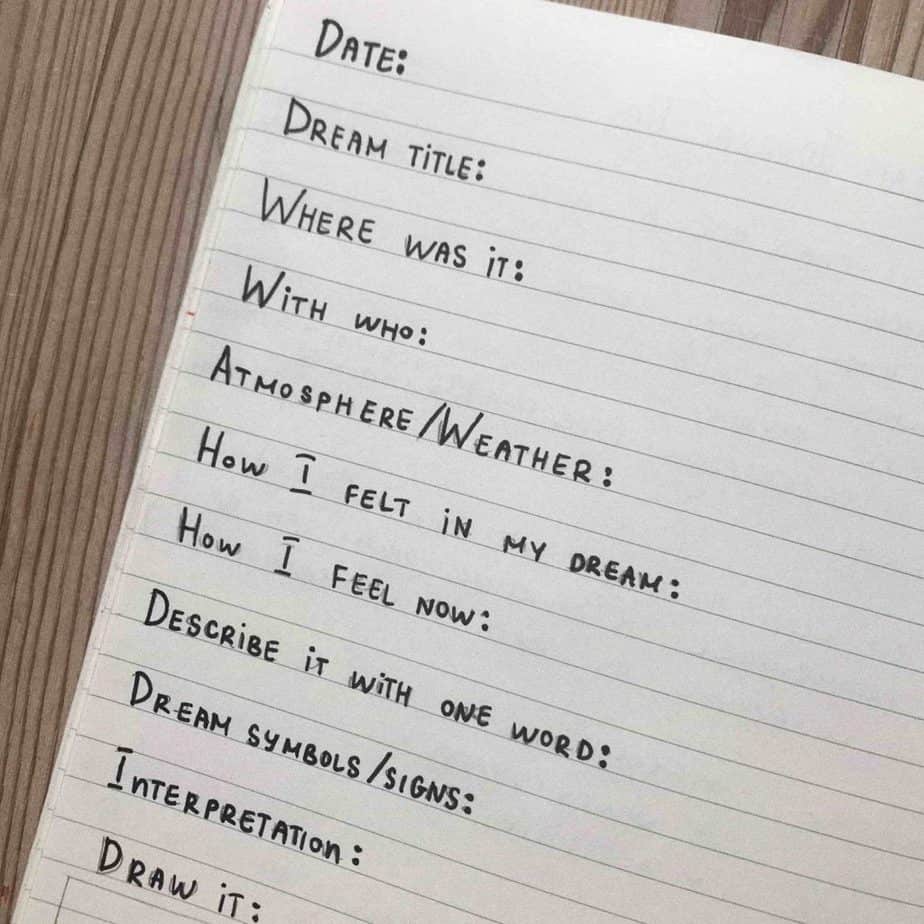







Hi! I would like to ask a question regarding my “dream symbols”.
Can dream symbols be everything? Feelings, objects, people, sounds? Something that reoccurs in my dreams is fear. Mostly all of my dreams involve being scared of something, is that a dream symbol?
Excellent post. I absolutely love this site. Continue the
excellent work!